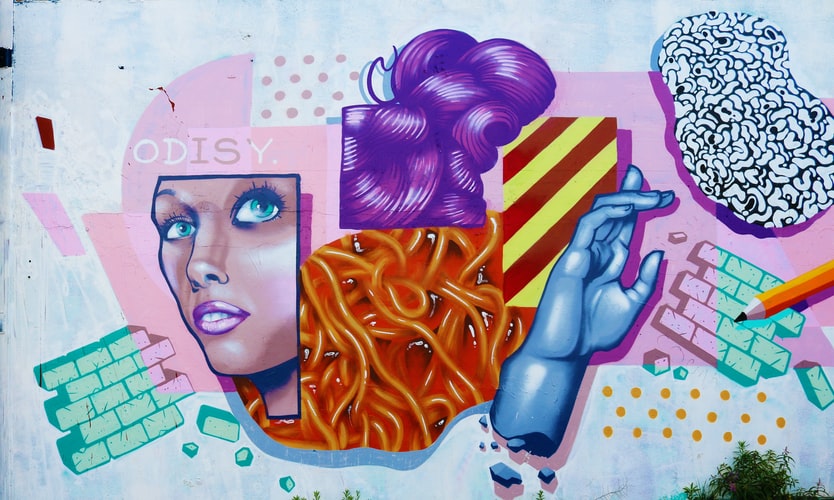Social media, or the virtual lives that we lead today, has become more important than the real corporeal world. In fact, the virtual world majorly influences and shapes our social lives in more ways than one.
Right from making new friends to experiencing the first flushes of romance to having our hearts broken – everything happens on social media. And just as healthy social lives in real world positively impact our mental health, a healthy social media presence also helps us steer ahead in a rapidly digitising world.
The ‘haha’ emoticon
Just like our real lives, the images we build in the virtual world also impact our self esteem. Something as insignificant as an emoticon can easily break us. For instance, let’s take the powerful ‘haha’ emoticon – a small laughing (crying) face which has almost become a weapon to subtly humiliate or disgrace people on social media.
Say, you have ruminated on a deeply personal problem for long and one day you decide to post your thoughts on Facebook. With great courage, you log in and write down your feelings with the hope of being understood, showered with some love and support.
But the moment you put it up for the world to see, you see a ‘haha’ reaction from one of those friends who you have never really liked, or have been ambiguous with regard to their behaviour towards you. You notice that every time you have posted a picture close to your heart, the same person has reacted with a dreaded emoji.
Also read: My Instagram Trolls Should Help Me Fight Our Common Foe – Patriarchy
You don’t wish to confront, so you unfollow the person only to later hear from a mutual friend that you have been mocked for it – openly or subtly – on some equally lengthy post that has gone up on their walls. You feel the sting of humiliation, so you perhaps cry to a friend and most importantly, from the next time on, you think twice about posting things.
We sacrifice these little avenues to happiness because, contrary to popular belief, unpleasant behaviour on social media does affect us enormously.
Gendered bullying
Men have always felt entitled to the private and personal spaces of women and the digital age has made it even easier. Just because one has accepted your follow request on Instagram doesn’t mean you have a free licence to stalk and like every single picture that person has uploaded since 2017.
However, I have heard raging arguments about how it’s invalid to cry over privacy infringement when you yourself have allowed a ‘fellow or (be) friend’ to access your account. By the same logic, hundreds of men (and some women) harass those who don’t respond to their messages.
Since time immemorial, society has assumed that the physical presence of women was only meant for exhibition. Women, on the other hand, have not had much control over how they would like to be ‘seen’. It is this exact powerplay and subjugation that takes place when some viewers (on social media) use their gaze to occupy and overpower the private spaces they have the permission to enter.
Access doesn’t amount to exploitation, but on social media platforms, the concept gets blurred.
Also read: The Rules of Survival Online
Women, across the ages, have always held politeness as an indispensable part of their every day behaviour. It’s a point of contention whether we have learnt to nurture the genes of congeniality or is it a significant attribute of our femininity. However, what’s clear is how men have always taken undue advantage of it. Most of my female friends have their inboxes flooded with messages of applause, adulation and even mild seduction whenever they upload pictures that fit into the male algorithm of being ‘sexy’.
Very often, these happen to be people who have abruptly ghosted meaningful conversations in the past. However, our pictures suddenly trigger their memories and they start messaging. On the other hand, pictures of subjects other than our bodies and faces – no matter how great the photography is – are generally ignored. For them, we are merely pieces of an exhibition, and our thoughts and talents are of no use.
To top it all, you would find some men advising women to augment their beauty every now and then: ‘A slight touch here and a slight flip of a hair’. We find ourselves in deep water when trying to express how annoying such comments are. And even if we manage to, they never seem to get.
It’s a powerful masculine trait to treat psychological damage as waters only weaklings drown in. As long as it isn’t ‘physical’, no injury is real. In the light of such arguments, one will find a multitude of men getting as nasty as reproducing pictures from the walls of other individuals to humiliate and shame them for their physique, their skin colour, their facial feature, the amount of hair on their body and tearing down their agencies to their own bodies.
There aren’t any copyright policies for our private pictures on social media as of now but we do have guards and filters to protect ourselves. But, if the fear of privacy infringement has become our primary concern before accepting friend requests, then we are clearly heading towards a miserable future.
In this day and age, where virtual platforms hold such power in our lives, I believe it is high time we rethink and reconsider the fact that etiquettes and manners are as much important in the parlance of our virtual social lives as much as our physical ones.
Samriddha Dutta is a graduate in English, Sociology and Film Studies from St Xavier’s College, Kolkata. She likes writing short pieces of fiction, essays, and poems.
Featured image credit: Creative Nerds/Unsplash

